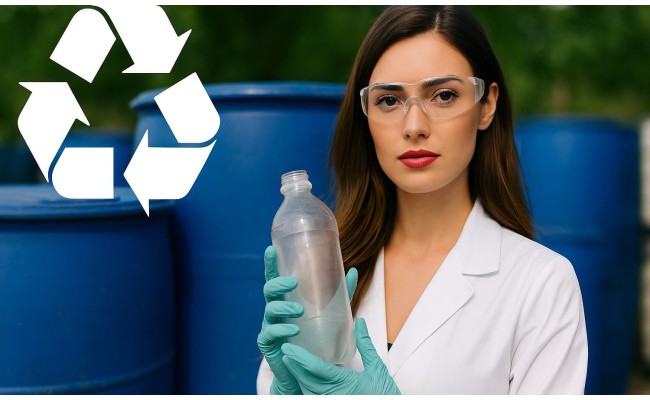- Call: +1 850 633 2663

Discover how advanced chemical recycling is transforming the circular economy with cutting-edge technologies like pyrolysis, depolymerization, and enzymatic breakdown. This innovative approach enables the recovery of high-quality raw materials from complex plastic waste, reducing reliance on fossil fuels and minimizing environmental impact. Learn about thermal and solvent-based processes, their yield optimization, and energy-efficient catalysts that enhance profitability. Explore feedstock pre-treatment advancements, AI-driven sorting, and modular plant designs that improve scalability. Understand the economic viability of chemical recycling, including cost structures, policy incentives, and market integration for recycled polymers. Stay ahead with insights into global regulatory frameworks, sustainability certifications (ISCC PLUS, RecyClass), and EPR compliance strategies. From closed-loop systems to industrial symbiosis, uncover how the chemical industry is driving zero-waste solutions while maintaining cost competitiveness. Whether you're in R&D, regulatory affairs, or sustainability, this deep dive into chemical recycling innovations provides actionable knowledge on scalability, ROI optimization, and circular supply chains, key to a sustainable future.
Attending the training on chemical recycling offers formulators valuable insights into polymer recycling, sustainability, production techniques, processes and much more;.
1. Future-Proof Your Expertise, Before Regulations Force You To: The chemical recycling revolution is coming, with strict EPR laws and carbon taxes already reshaping global markets. Don’t get left behind and learn how to adapt your operations before compliance becomes costly.
2. Unlock Hidden Profit in Waste, Without High-Risk Bets: Chemical recycling isn’t just eco-friendly, it’s a new revenue stream. Discover low-CAPEX entry strategies, tax incentives, and offtake models that turn plastic waste into profit.
3. The Tech Breakthroughs Your Competitors Are Already Testing: From enzyme-enhanced depolymerization to AI-powered sorting, cutting-edge innovations are redefining recycling efficiency. Get ahead with real-world scalability insights, not just lab theories.
4. Avoid Costly Scale-Up Mistakes, Lessons From the Frontlines: Many projects fail at pilot-to-production transition. Learn the make-or-break factors in feedstock sourcing, reactor design, and energy optimization.
5. Stop Guessing at Sustainability Claims, Master Compliant Marketing: Recycled content" claims face tightening FTC/ECHA rules. Walk away with a greenwashing-proof framework to market your products confidently and avoid costly legal risks.
This is highly recommended and must have training for chemical industry professionals engaged in diverse application/formulation areas; in particular:
- R&D chemists, formulators, new product developers
- Technical service managers, lab managers, product managers
- People that function in the materials development areas
0 reviews